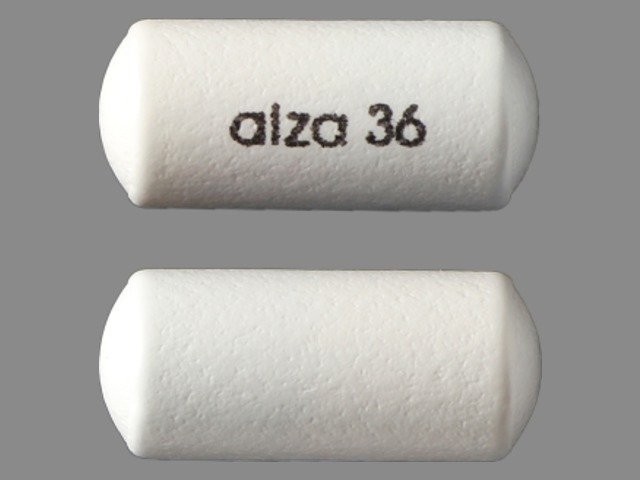Concerta (Methylphenidate) 36mg
$1.80
Concerta (Methylphenidate) 36mg tablets/pills:
Concerta (methylphenidate) is a central nervous system stimulant. It affects chemicals in the brain and nerves that contribute to hyperactivity and impulse control.
Concerta is used to treat attention deficit disorder (ADD) and attention deficit hyperactivity disorder (ADHD). It is indicated for use in children 6 years of age and older, adolescents, and adults up to the age of 65. Concerta should be used as an integral part of a treatment program that includes psychological, educational, and social measures.
You can buy Concerta (Methylphenidate) 36mg tablets online without prescription (No RX)
Concerta, containing the active ingredient Methylphenidate, is a stimulant medication primarily prescribed for attention deficit hyperactivity disorder (ADHD). The 36mg dosage is a common starting point or maintenance dose, carefully calibrated to help individuals manage symptoms like inattention, hyperactivity, and impulsivity. This guide provides a comprehensive overview of Concerta 36mg, designed to empower you with knowledge and understanding.

Understanding Concerta and ADHD
ADHD is a neurodevelopmental disorder characterized by persistent patterns of inattention, hyperactivity, and impulsivity that interfere with daily functioning. Concerta works by affecting certain chemicals in the brain, primarily Dopamine and Norepinephrine, which are crucial for focus, attention span, and impulse control. By increasing the availability of these neurotransmitters, Concerta helps individuals concentrate, organize tasks, and control impulsive behaviors.
Concerta 36mg: Dosage and Administration
Concerta 36mg is an extended-release formulation, meaning it releases the medication gradually over several hours. This provides a consistent level of medication in the bloodstream, reducing the need for multiple doses throughout the day. It’s crucial to follow your doctor’s instructions precisely regarding dosage and timing. Generally, Concerta is taken once daily in the morning to minimize sleep disturbances. Taking it with or without food can be discussed with your doctor, as individual responses may vary.
Benefits of Concerta 36mg
For individuals with ADHD, Concerta 36mg can offer significant benefits, including:
- Improved Focus and Concentration: Enhanced ability to pay attention to tasks, complete assignments, and stay on track.
- Reduced Hyperactivity: Decreased restlessness, fidgeting, and excessive talking.
- Enhanced Impulse Control: Less impulsive behavior, leading to better decision-making and improved social interactions.
- Improved Organizational Skills: Increased ability to plan, organize, and manage time effectively.
- Better Academic and Professional Performance: Improved focus and cognitive function can translate to better grades, increased productivity, and enhanced job performance.
Potential Side Effects and Precautions
While Concerta 36mg can be highly effective, it’s essential to be aware of potential side effects. Common side effects may include:
- Decreased Appetite
- Difficulty Sleeping
- Headache
- Nausea
- Stomach Pain
- Nervousness or Anxiety
More serious side effects are rare but require immediate medical attention. These can include:
- Chest Pain
- Shortness of Breath
- Changes in Vision
- Mental/Mood Changes (e.g., depression, agitation)
It’s crucial to discuss any pre-existing medical conditions, especially heart problems, mental health disorders, or a history of substance abuse, with your doctor before starting Concerta.
Monitoring and Management
Regular follow-up appointments with your doctor are essential to monitor your progress and adjust the dosage as needed. It’s also important to maintain open communication about any side effects you experience. Lifestyle adjustments such as maintaining a healthy diet, regular exercise, and consistent sleep schedule can further enhance the effectiveness of Concerta and improve overall well-being.
Conclusion
Concerta 36mg can be a valuable tool in managing ADHD symptoms and improving overall quality of life. By understanding its benefits, potential side effects, and the importance of medical monitoring, individuals can make informed decisions and work with their healthcare providers to achieve optimal results. Always consult with your doctor for personalized advice and guidance regarding Concerta 36mg and its suitability for your specific needs. Methylphenidate 36mg.
Related products
ADD / ADHD
ADD / ADHD
ADD / ADHD
ADD / ADHD
ADD / ADHD
ADD / ADHD
ADD / ADHD










